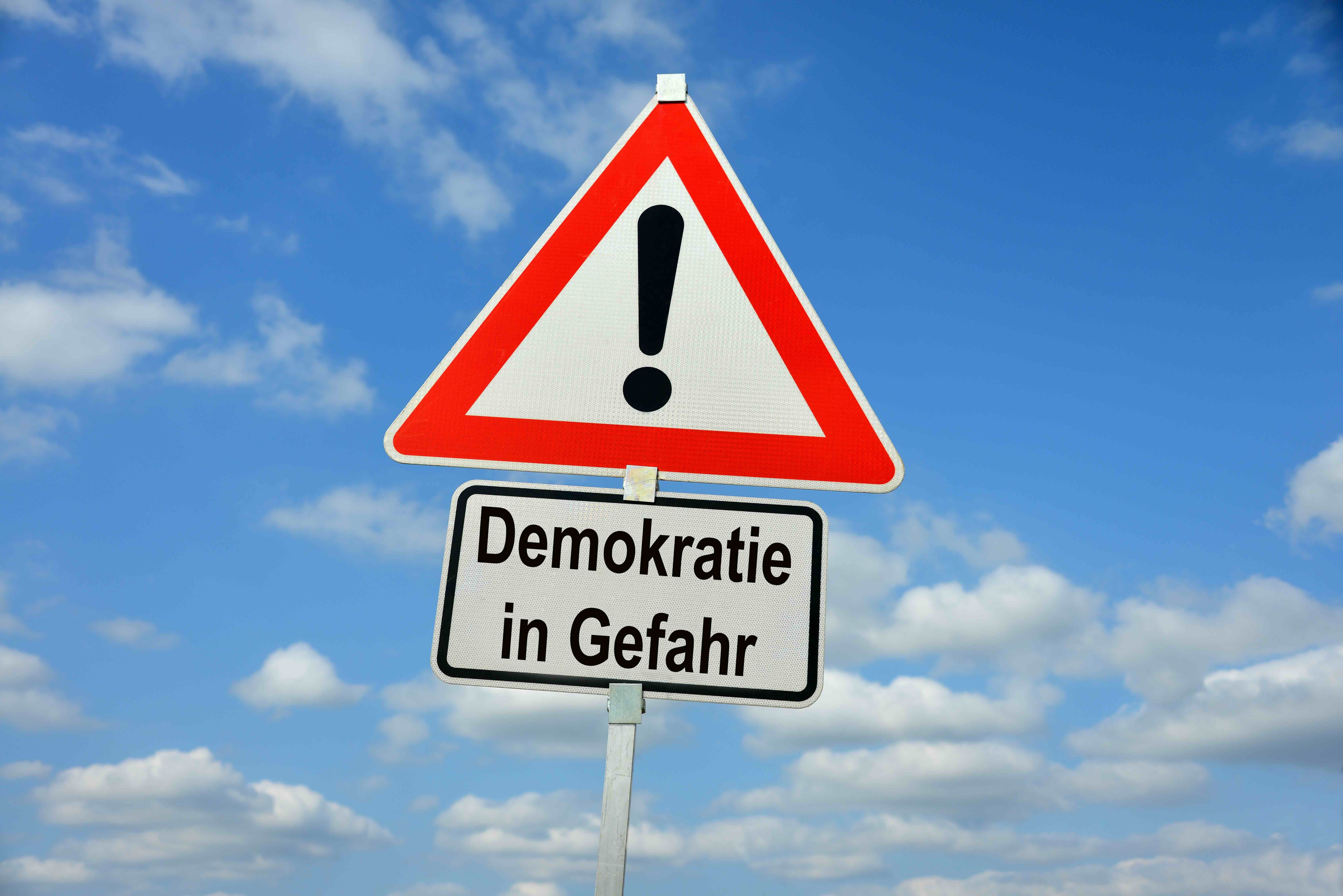#Up4Democracy
Strengthening African democracies: Lessons from the continent

Traffic warning sign saying Democracy in danger (in German Demokratie in Gefahr)
© ShutterstockAfrica’s journey toward democratic governance has been marked by progress, setbacks, and invaluable lessons. Since the wave of independence in the mid-20th century, the continent has seen an evolution in governance models, with democracy gradually becoming a central aspiration for many nations. While challenges persist, there is a growing recognition of the need to strengthen democratic systems, enhance accountability, and ensure governance that serves the people. Examining successes and learning from failures across the continent provides a roadmap for a more democratic future.
The Evolution of Democracy in Africa
Post-independence Africa was often characterised by one-party states, military rule, and authoritarian regimes. The 1990s, however, ushered in a "third wave" of democratisation, fuelled by internal movements and global trends favouring democratic governance e.g. (Malawi, Zambia, Lesotho ending multiparty rule). Many nations adopted new constitutions, held multiparty elections, and introduced reforms aimed at fostering transparency.
Yet, democracy in Africa is not uniform. While some countries have achieved relative stability and established functional democratic systems, others continue to grapple with electoral fraud, weak institutions, governance crises, conflicts and wars.
Lessons from Successful Democracies
Several African nations offer valuable lessons in democratic governance.
1. Botswana: Stability through Institutions
Botswana stands out as a model of stability and good governance. Since independence in 1966, it has maintained uninterrupted democratic elections. The country’s commitment to rule of law, an independent judiciary, and a professional civil service has been critical to its success. Botswana demonstrates the importance of strong institutions that transcend political cycles. Botswana held a peaceful general election on 30th October 2024, an election that saw voters kicking the ruling BDP party out of government after 58 years.
2. Ghana: Peaceful Transitions of Power
Ghana has become a beacon of democracy in West Africa, with peaceful transitions of power between political parties since 2000. Key to this achievement has been a robust electoral commission and a politically engaged citizenry. Ghana highlights the role of fair electoral systems and civic participation in strengthening democracy. Ghana successfully conducted its general elections on the 7th of December 2024, prompting the return to power of former president John Mahama an opposition candidate who previously served one term from 2012 to 2017, defeating Vice President Mahamudu Bawumia who was representing the New Patriotic Party (NPP)
3. South Africa: Reconciliation and Inclusion
South Africa’s transition from apartheid to democracy in 1994 is a testament to the power of inclusive governance. The Truth and Reconciliation Commission played a vital role in addressing past injustices, fostering national healing, and laying a foundation for democratic governance. The South African experience underscores the importance of addressing historical grievances to build trust in democratic systems. Since 1994 to 2024, South Africa has conducted peaceful, free and fair elections.
Challenges and Persistent Threats
Despite these successes, many African democracies face significant challenges. Electoral manipulation, corruption, and weak institutions often undermine democratic gains. Additionally, the rise of authoritarian tendencies and military coups in countries like Sudan, Mali, and Guinea in recent years has raised concerns about democratic backsliding.
Ethnic divisions, poverty, and inequality also pose threats to democratic stability. Politicians sometimes exploit ethnic or regional identities for political gain, deepening divisions and fuelling conflict. Addressing these structural issues is critical for the sustainability of democratic systems.
Key Strategies for Strengthening Democracies
1. Investing in Institutions
Building strong, independent institutions is essential for safeguarding democracy. Electoral commissions, judicial systems, and anti-corruption bodies must be empowered and insulated from political interference.
2. Civic Education and Participation
Educating citizens about their rights and responsibilities in a democracy enhances accountability and reduces voter apathy. Civil society organisations and the media play vital roles in this effort by providing platforms for dialogue and holding leaders accountable.
3. Promoting Economic Inclusivity
Democracy thrives when citizens see tangible benefits from governance. Policies that promote economic inclusivity, reduce inequality, and create opportunities for marginalised groups can strengthen public trust in democratic institutions.
4. Regional Cooperation and Peer Pressure
Regional bodies like the African Union (AU) and Economic Community of West African States (ECOWAS) have an important role in promoting democracy. The AU’s African Peer Review Mechanism (APRM) provides a platform for member states to share experiences and uphold democratic principles.
5. Leveraging Technology
Digital tools can enhance transparency and citizen engagement. From mobile platforms that monitor elections to social media campaigns that amplify marginalised voices, technology offers innovative ways to strengthen democracy.
The Way Forward
Africa’s democratic journey is far from linear, but the continent has shown resilience and ingenuity in addressing governance challenges. Learning from successful models, investing in institutions, and fostering a culture of accountability are vital steps toward sustainable democracy.
As African nations continue to evolve, the commitment to democratic principles must be unwavering. The continent’s future lies in the hands of its people, leaders, and institutions, united in the pursuit of governance that reflects the will of the people and upholds their dignity. With the right strategies and lessons learnt, Africa can lead the way in demonstrating the power of democracy in fostering peace, prosperity, and justice.
